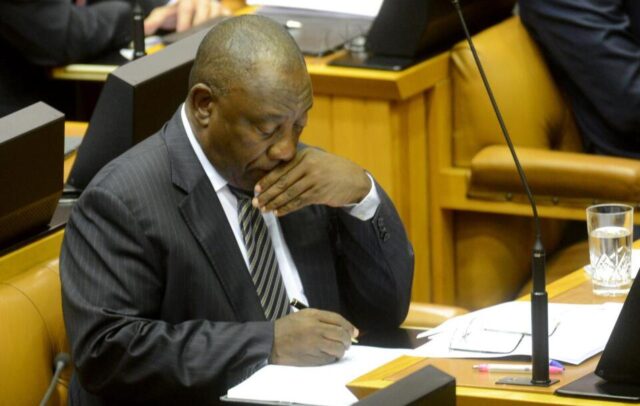Markets on Monday: South African share and bond markets moved nervously during last week, writes Chris Harmse.
SOUTH African share and bond markets moved nervously during last week.
The announcement by the US Federal Reserve last Wednesday that it would increase its bank rate by 0.25% to the range of 4.5% to 4.75% came as expected, but the hawkish tone of Fed chair Jerome Powell that more is in store made world financial markets nervous. The latest increase, however, was lower than the 0.5% at its previous meeting announcement in December.
US equities initially rallied by 2.0% shortly after Powell announced that inflation is expected to ease much lower in months to come. The announcement saw oil prices rally quickly and the dollar depreciate against most currencies.
On Thursday, the rand – after losing initially more than 40 cents after the rate hike announcement to trade at levels weaker than R17.40 to the dollar – recovered strongly to lower than R17.00. The currency, however, shows big volatility as it depreciated strongly on Friday to R17.37.
On Wall Street, equities lost steam on Thursday and Friday as it became clear that the US non-farm payrolls report for January indicated the US economy was creating many more jobs than expected. The job report shows the US economy created a massive 517,000 jobs in January 2023, the most since July 2022 and more than double the 185,000 that was forecast. This large improvement in job creation pushed the US unemployment rate down to 3.4%, the lowest since May 1969. Together with the average hourly earnings that have increased by 0.3% in January, inflation pressure in the US will continue.
It seems expectations are that the Fed will continue to raise its bank rate. The Fed has set a target of 4.2% for unemployment before it will consider no further rate hikes. The Dow Jones industrial index ended last week flat, losing only 245 points (0.008%) after it lost steam (-0.38%) on Friday in reaction to the job data. The S&P500 on Friday was -1.04% down, but the index still gained 2.0% over the week, indicating that US equities rather would strongly recover this year.
On the JSE, no fresh economic data, some nervousness on equities on global bourses, and mixed expectations on the State of the Nation Address (Sona) of the president this coming Thursday, have led to volatile and uncertain movement on equity prices.
The all share index ended the week flat and lost only 0.33% over the past seven days. The index, however, still hovers above the 80,000 point level (80241 points) and has gained 9.85% since the beginning of the year.
It seems currently that the load shedding by Eskom has had a trivial effect on the All Share Index. After Stage 4 to 6 load shedding was introduced regularly, the index – over the past six months – has shot up by 17.0%. Most of the shares on the Top 40 and All Share Index indices earn most of their earnings outside South Africa and remain indifferent to domestic geopolitical events. The Top 40 Index for that matter has already increased since the beginning of the year by 10.64%.
The US inflation and interest rates, and Europe and China’s recovery will dominate movements in South Africa’s equity prices.
This coming week, investors and analysts will await the Sona on Thursday, as well as the release of Stats SA’s mining and manufacturing production data for December 2022. It is expected that both will be negative, with mining production down by -4.4% (-9.6% in November), and manufacturing production contracting by -2.5% (-1.1% in November).
Globally, the US will release its balance of trade data for on Tuesday. The US Fed chair will deliver a monetary policy speech, also on Tuesday. On Wednesday, the US will release its latest gasoline production and crude oil stocks data.
On Thursday, Germany will announce its latest inflation rate data. It is expected that German CPI has increased by 8.9% in January compared with 8.6% in December 2022. US weekly jobless claims will be published on Thursday. The important gross domestic product growth rate (quarter four 2022) for Britain will be published on Friday. Expectations are that its economy has grown by 0.1% (quarter-on-quarter annualised) pushing the UK officially into a recession as the economy contracted -0.3 in quarter three 2022.
* Chris Harmse is the consulting economist of Sequoia Capital Management.
– BUSINESS REPORT








